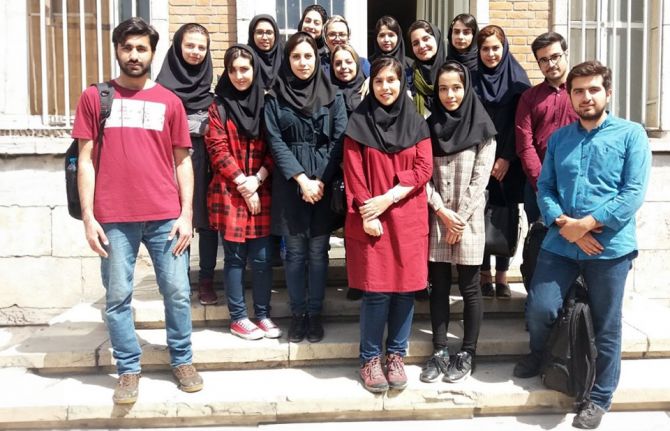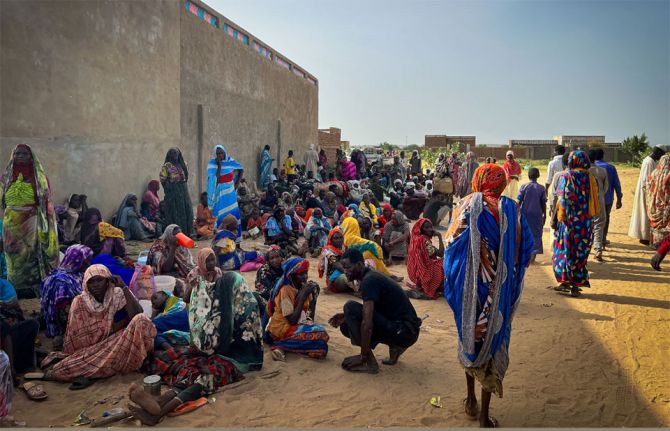
Feature Story
Gulf Cooperation Council Member States call for collaborative approach to effectively respond to AIDS
28 April 2011
28 April 2011 28 April 2011
Mrs Hind Khatib Othman, Director of UNAIDS Regional Support Team for Middle East and North Africa participating in the Saudi initiative “Combating AIDS in GCC countries”. 16-18 April 2011. Riyadh, Kingdom of Saudi Arabia.
A new initiative “Combating AIDS in GCC countries” was hosted by the Minister of Health of Saudi Arabia, Dr Abdullah bin Abdul Aziz Al Rabeeah and the Gulf Cooperation Council (GCC) on 16 April in Riyadh.
The initiative is a call for collaborative approach to keep HIV prevalence low in the GCC countries and re-affirms the political commitment of the council to respond effectively to AIDS. The GCC is a political and economic union between the Persian Gulf States of the United Arab Emirates, Bahrain, Saudi Arabia, Oman, Qatar and Kuwait.
Dr Abdullah Al Rabeeah stressed that AIDS is not only a health issue but also a development one that poses a ‘real threat to the long-term growth of the region.’ “The GCC countries will work closely to produce recommendations that will help prepare a roadmap to respond to AIDS,” said Dr Al Rabeeah.
The participants agreed on the need to join efforts to better understand and know their countries’ epidemics. During the meeting, they shared global and regional experiences, identified obstacles hindering an effective response and agreed to enhance national AIDS strategies that are focused, results-oriented, evidence-informed and embedded in human rights. Stigma and discrimination towards people living with HIV, weak surveillance system, travel restrictions and mandatory HIV testing along with gender inequalities were identified as critical issues that are hindering an effective AIDS response in the region.
Mrs Hind Khatib Othman, Director of UNAIDS Regional Support Team for Middle East and North Africa noted that a large number of people in the region are migrants seeking work, particularly in the GCC Countries. Migrant workers have often little or no right to legal or social protection in their host country and generally lack access to HIV services and information.
The GCC countries will work closely to produce recommendations that will help prepare a roadmap to respond to AIDS
Minister of Health of Saudi Arabia, Dr Abdullah bin Abdul Aziz Al Rabeeah
Mrs Khatib Othman stressed on the importance of including migrant and mobile populations in the national AIDS strategies. As part of the entry visa process in some countries, people migrating for work must undergo a health test, including a test for HIV, from a certified clinic. However, there is little or no referral to treatment or support services for people who test positive for HIV. If found HIV positive, most countries in the region will deport a migrant worker without explanation, with little compensation, and no consideration for the migrant’s rights or dignity.
People living with HIV participated openly at the event and provided inputs to shape the final recommendations. They welcomed the Saudi Arabian government’s decision of providing free HIV treatment and care services and for their protective policies regarding job applications and maintenance. However, they called on the private sector to follow in the government footsteps. “I am healthy, I want and need to work, I do not want to live on donations and sympathies of others,” said a representative of a network for people living with HIV.
The GCC initiative also highlights the role that civil society can play in enhancing the response to HIV in the GCC countries. “Religious leaders and the media can play an important role in breaking the silence and mobilizing other sectors of society,” said Dr Mongia Souahi, professor of Islamic science at Ez-zitouna University in Tunisia. She also stressed the important role women can play—including female religious leaders—in HIV prevention efforts and in addressing stigma and discrimination.
The meeting concluded with the writing of the draft Riyadh Charter. The document was agreed upon by GCC health delegates and was endorsed by the Deputy Minister of Health of Saudi Arabia, Dr Ziad Memish on the behalf of the Ministry. The Charter includes ten recommendations for GCC countries to act upon. These recommendations are:
- Conduct research in the GCC countries to identify the main modes of transmission, recent HIV infections, and the nature and background of key populations.
- Increase collaboration and coordination among ministries, health, religious and social authorities in terms of training and HIV awareness raising programs.
- The Gulf Committee to work with relevant authorities in developing a Media Charter to tackle HIV issues in the Media.
- Support availability of services to prevent mother-to-child transmission of HIV.
- Scale up HIV treatment, care and support programs for people living with HIV.
- Review and enact laws and legislations that preserve the human rights of people living with HIV.
- Scale up HIV counseling and testing programs.
- Enhance involvement of civil society and the private sector in the AIDS response.
- Develop HIV prevention programs focusing on adolescents and young people.
- Develop a strategy and adopt mechanisms to ensure the implementation of the Riyadh Charter.
The draft Riyadh Charter will be further discussed by the individual countries with the hope of being endorsed by the GCC Health Ministers at a side event during the World Health Assembly. UNAIDS pledged their support to ensure that the Riyadh Charter be translated into an operational plan of action.



